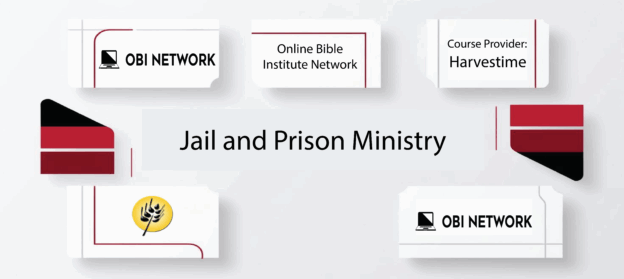Jail and Prison Ministry

About Course
Course Description:
A complete guide to jail and prison ministry. Includes guidelines for visiting and writing inmates, conducting group services inside an institution, reaching out to families of inmates and ministry on death row.
Course Objectives:
- Provide references for the scriptural mandate for prison ministry.
- Explain why believers should be involved in prison ministry.
- Articulate the spiritual goals of jail and prison ministry.
- List the social goals of jail and prison ministry.
- Summarize what the Gospel has to offer prison inmates.
- Determine your role in prison ministry.
- Summarize the spiritual qualifications for a prison ministry worker.
- Identify four areas of preparation vital to effective prison ministry.
- Summarize the steps for starting a prison ministry.
- Identify various types of ministries which you might provide in an institution.
- Prepare and submit a proposal for prison ministry.
- Recruit and train volunteers.
- Explain how to get started corresponding with an inmate.
- Summarize guidelines for corresponding with inmates.
- Explain why personal visitation is an important ministry.
- Explain how to get involved in one-on-one visitation with inmates.
- Summarize guidelines for visiting individually with an inmate.
- Identify various group meetings that can be conducted in jails and prisons.
- Summarize guidelines for conducting group meetings.
- Explain why inmates’ families are often in crisis.
- Identify ways in which you can minister to inmates’ families.
- Summarize guidelines for ministering to inmates’ families.
- Explain how to start a ministry to death row inmates.
- Discuss guidelines for ministering to death row inmates.
- Explain how to help a death row inmate prepare to die.
- Identify common needs of ex-offenders.
- Describe types of post-prison ministries.
- List steps for starting a post-prison ministry.
- Determine your role in post-prison ministry.
- Demonstrate understanding of institutional security levels.
- Discuss differences between jails and prisons.
- Discuss common inmate typology.
- Explain how to deal with inmates who maintain their innocence.
- Describe dress codes applicable for all penal institutions.
- Summarize safety codes applicable for all penal institutions.
- Give guidelines for surviving a hostage incident.
- Explain the first rule for relating with inmates.
- Summarize guidelines for relating to inmates.
- Define a “setup,” explain how it occurs, and how to avoid it.
Course Requirements:
- Complete the Study Guide reading for each lesson.
- Complete the Self-Test questions for each lesson. You do not need to send us your answers. Please remember that as students preparing for ministry, your calling is not just about gaining knowledge—it’s about developing the character that reflects Christ in all aspects of life. One of the simplest yet most powerful ways to walk in integrity is by honestly and faithfully answering every self-test question in your coursework.
- As you complete each chapter you need to go to the Activity Feed and post a comment about something that interested or impacted you as you worked through the lesson. Your comment needs to be well thought out and consist of at least fifty (50) words. Ensure that you start your comment with the course name and lesson number. You also need to post comments on two other students’ recent course comments.
- Complete the Lesson Assignments. Your answers are reviewed so please write well thought out answers..
- After you have completed all of the Lessons, you will need to complete the Final Examination, the Final Paper and the Final Assignment.
Click on the link below for the Jail and Prison Ministry Study Guide:
Jail and Prison Ministry Course Guide
All of the ideas and principles conveyed by the instructor in this course are not necessarily held by the Online Bible Institute Network.
Course Content
Lesson 1
-
Chapter 1
